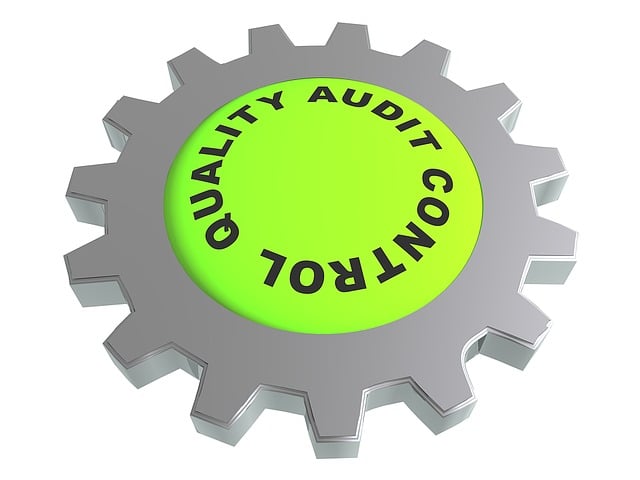Unqualified real estate agents pose significant risks to client safety due to their lack of knowledge, skills, and ethics. To mitigate these dangers, employers must implement rigorous screening processes, including thorough background checks, ongoing professional development, and comprehensive digital assessments. Prioritizing client safety through these measures safeguards financial interests, personal well-being, and maintains market integrity.
In the dynamic realm of real estate, ensuring client safety is paramount. Unqualified agents can pose significant risks, leading to unsatisfactory transactions and even legal complications. This article delves into the critical importance of screening in preventing such pitfalls. We explore how inadequate screening practices impact both clients and agencies, highlighting the need for robust background checks. Furthermore, we present efficient hiring strategies and modern screening methods that foster trust and safeguard client interests in today’s market.
- Unqualified Agents: A Client Safety Risk
- The Impact of Inadequate Screening
- Protecting Clients Through Thorough Background Checks
- Efficient Hiring Practices for Real Estate Agencies
- Ensuring Trust: Modern Screening Methods
Unqualified Agents: A Client Safety Risk

Unqualified agents pose a significant risk to client safety in real estate. When individuals without the necessary knowledge, skills, or ethics enter the industry, they can undermine the trust clients place in them. These agents may not fully understand legal requirements, such as disclosure rules and contract terms, which could lead to costly mistakes or even fraud. Moreover, their lack of experience or inadequate training might result in poor decision-making, causing clients to make investments that are not in their best interests.
Client safety is paramount in real estate transactions. Employers have a responsibility to screen prospective agents rigorously to ensure they possess the required competencies and adhere to ethical standards. Thorough background checks, performance evaluations, and ongoing professional development can help identify and weed out unqualified individuals, safeguarding clients from potential harm and ensuring a more secure and reliable industry.
The Impact of Inadequate Screening

Inadequate screening practices can have significant repercussions in the real estate industry, particularly regarding client safety. When agencies or individuals skip essential verification steps, it leaves room for unqualified, and potentially unethical, agents to operate. This raises concerns for clients who may fall victim to poor service quality, misleading information, or even fraudulent activities.
A lack of proper screening means that unsuspecting clients might be paired with unskilled professionals who may not have the necessary knowledge or integrity to represent their best interests. Such situations can lead to costly mistakes, emotional distress, and a damaged trust in the real estate market. Effecting thorough background checks, verifying qualifications, and conducting interviews are vital steps to ensure client safety and maintain the integrity of the industry.
Protecting Clients Through Thorough Background Checks

Real estate transactions involve significant financial and personal commitments, making client safety in real estate paramount. Thorough background checks are a critical step in screening potential real estate agents. These investigations go beyond verifying qualifications and licenses to uncover any red flags that could compromise client trust or security. By conducting comprehensive background checks, real estate brokerages ensure that their agents have a clean record, no history of fraudulent activities, and meet the ethical standards expected in the industry.
Protecting clients from unqualified or untrustworthy individuals is not just about compliance; it’s about maintaining the integrity of the real estate market. Background checks help weed out agents with a history of misdeeds, ensuring that clients interact only with professionals who are worthy of their trust. This measure safeguards both the financial interests and personal well-being of buyers and sellers, fostering a transparent and secure environment for all transactions.
Efficient Hiring Practices for Real Estate Agencies

Real estate agencies can significantly enhance their hiring process by implementing efficient screening practices. This proactive approach ensures that only qualified and competent agents are selected, thereby safeguarding client safety in real estate. Initial screening involves verifying educational credentials, professional certifications, and work history to gauge an applicant’s knowledge and experience. Background checks, including criminal records and reference verifications, further mitigate risks associated with untrustworthy individuals accessing sensitive client information.
Additionally, practical assessments can be conducted to evaluate candidates’ communication skills, problem-solving abilities, and industry expertise. Real estate transactions demand a high level of professionalism and integrity, making it crucial for agencies to assess an agent’s fit within their organizational culture. By adopting these measures, real estate agencies not only prevent unqualified individuals from becoming agents but also foster a trustworthy environment that prioritizes client safety and satisfaction.
Ensuring Trust: Modern Screening Methods

In today’s digital era, modern screening methods have revolutionized the way real estate agencies vet potential agents. These advanced techniques go beyond traditional background checks to ensure client safety in real estate. By leveraging technology, agencies can now conduct thorough assessments, verifying qualifications, experience, and even referencing past clients. This multi-faceted approach not only identifies unqualified candidates but also helps in cultivating a trustworthy environment for both customers and staff.
For instance, digital platforms and online repositories allow for easy cross-checking of credentials and certifications. Video interviews and skill tests can assess communication skills and industry knowledge. Additionally, social media screening offers insights into an applicant’s professionalism and client interactions. These innovative practices ensure that only competent and trustworthy individuals are hired, thereby enhancing client safety and satisfaction in the real estate sector.






